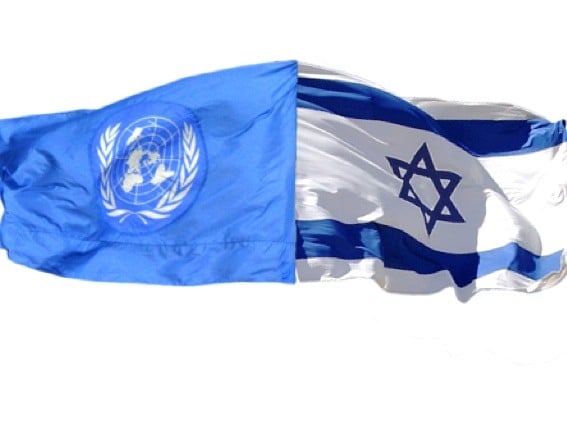Similar to its leading role in high tech, Israel can blaze a trail and show that there is a steep price to be paid for the United Nations’ relentless undermining of a country’s sovereign right to manage its own affairs.
The United Nations Security Council vote regarding Israeli settlements, made possible by the Obama administration’s historic decision to abstain, has effectively nullified the Oslo Accords that had been based on the concept of bilateral negotiations between Jerusalem and Ramallah.
By short-circuiting direct talks on the most complicated of the ‘final status’ issues – the fate of over 400,000 Israeli men, women and children residing over the Green Line – the UN condemnation of the settlement enterprise is simultaneously a dramatic vote of confidence in the Palestinian narrative.
As such, Palestinian Authority President Mahmoud Abbas has been given the green light to pursue his policy of making the West Bank judenrein.
How should the Israeli government proceed? On the Right, Jewish Home leader Naftali Bennet used the news out of New York to push for de facto annexation of large parts of the West Bank, promising to introduce legislation to extend sovereignty to a large settlement near Jerusalem. On the Left, opposition leader Isaac Herzog called on Prime Minister Benjamin Netanyahu to resign, while Zionist Union number two and former foreign minister Tzipi Livni said that that the anti-settlement resolution was a direct result of the Regulation Bill that aims to legalize thousands of Jewish homes in the West Bank.
For his part, Netanyahu responded quickly and vigorously to the vote, ordering a halt in funding to five UN institutions that are especially hostile toward Israel. In addition, the Israeli premier vowed to have UN Security Council Resolution 2334 cancelled, the way the 1975 resolution equating Zionism with racism was ultimately rescinded.
But do implied threats to reassess Israel’s ties to the United Nations best serve the national interest of the Jewish state?
Rather than railing against an international body that has long embraced and encouraged Palestinian intransigence, Israeli leaders of all political stripes should respond to UN meddling in an internal policy matter by offering to do absolutely nothing.
Seriously, is there any short- or long-term benefit to the Israeli government recalling its ambassadors from New Zealand and Senegal?
Rather than working to mend diplomatic fences or engage in brinksmanship with Security Council members who either voted for or abstained, Israel today has a unique opportunity to expose the United Nations for a hypocritical den of thugs that routinely ignores some of the most egregious human rights crimes around the world.
Similar to its leading role in high tech, Israel can blaze a trail and show that there is a steep price to be paid for the United Nations’ relentless undermining of a country’s sovereign right to manage its own affairs.
On Friday, December 23, 2016, the United Nations crossed a red line that Israel can forcefully and effectively respond to by immediately renegotiating all its bilateral trade deals with the Security Council members – those with which Jerusalem has diplomatic ties – that either supported or abstained on Resolution 2334. While the idea of strongarming China may seem implausible, let’s not forget that the government in Beijing, similar to the leaders of other regional powers, is actively seeking to transform the country into a knowledge- and intellectual property-based economy.
And in a world where innovation and technology are key economic drivers, Israel has emerged as a crucial factor in the global economy. While some may point to the passage of Resolution 2334 as proof of Israel’s growing international isolation, 2016 was a record year for mostly foreign investments in Israel’s high tech companies, exceeding the $4.4BN invested in 2015.
Finally, no one can deny that there is indeed a humanitarian crisis taking place in the territories controlled by the Palestinian Authority. Exploiting the world’s silence, the PA is committing an increasing amount of human rights violations against its own people. In a recent letter to the European Parliament, Fatah lawmakers warned of a “serious deterioration of democracy” in the Palestinian Authority.
So perhaps the United Nations should consider recalibrating its condemnations and start targeting its pro-Palestinian resolutions against the growingly repressive regime of Mahmoud Abbas.
